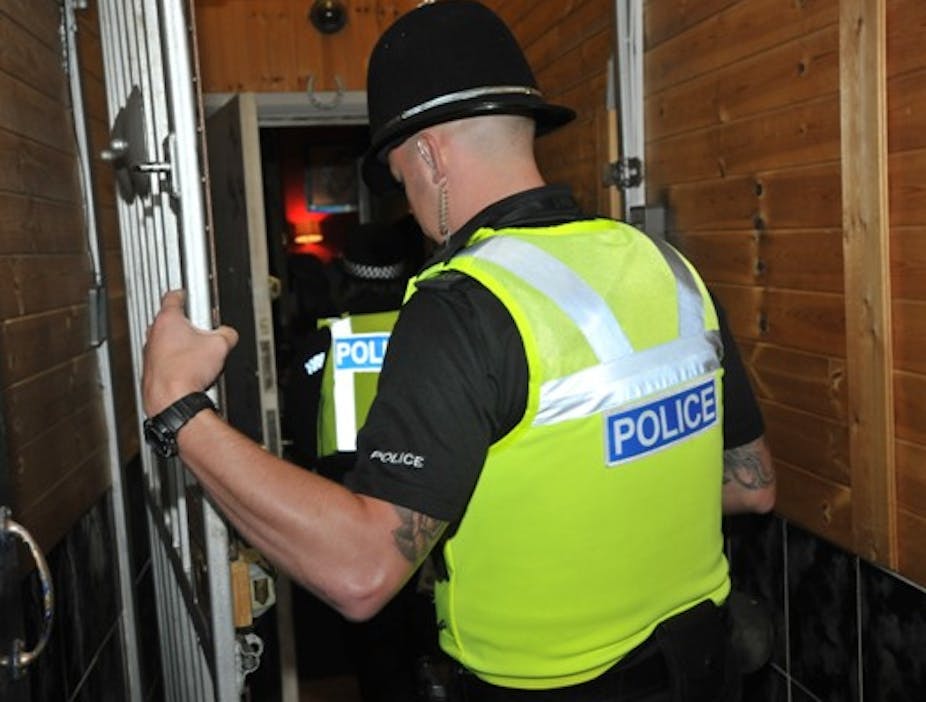In the 20 years I have worked on issues around the night-time economy, I’ve seen sex workers treated in wildly varying ways: greeted with humane understanding and mild curiosity by residents’ groups, and shouted down in parliamentary meetings by those who claim to want to “save” them.
I have heard a female minister put forward a policy in public while admitting it was dangerous in private – a sobering experience. Meanwhile, a breakneck-paced media still tends to frame commercial sex policy as a debate between those who are for or against one policy or another, rather than a problem of public understanding and empirical evidence.
Above all, I have seen a tragic mismanagement of the policy process – one that to a large extent continues today. Much of this mismanagement stems from lax standards of evidence and the misguided use of seriously compromised data by both campaigners and policy makers alike.
In my work – which includes one of the largest observational surveys of clients to date, as well as analyses of how many sex workers there actually are in England and Wales – I have pushed for higher standards of rigour in the evidence and research underpinning sex work policy. Sadly, after two decades of policy-based evidence-making, these standards remain too low.
The politics of data
A classic example arose in 2008, when Harriet Harman’s office commissioned a poll on the public’s views on sex work. This was apparently done without so much as a glance at existing social attitudes surveys that show how society has become more socially liberal. Ms Harman’s office were therefore caught off guard by the poll’s results – which, despite some very leading questions, found that 59% of people agreed with a statement that “prostitution is a perfectly reasonable choice that women should be free to make”. This was taboo in policy-making terms, so another poll was was commissioned, and once again, it failed to provide the desired answers.
Meanwhile, the continued prominence of nonsensically inflated figures on sex trafficking, raids by police in riot gear turning sex workers out of safe premises and onto the streets and the sight of resources funnelled away from other areas of vital need (such as domestic servitude) impelled me to write an op-ed lamenting the shoddy quality of the reports being used for policy, and demanding transparency to expose the vested interests involved.
It was only when I received legal notices in response to that piece that I realised that there was something altogether more sinister, and more interesting, going on than I had first thought.
To be threatened with legal action for writing freely about these problems was disturbing – but it also aroused my interest, and so I dug further. Nine months and two freedom of information requests later, I found what remains to this day my favourite example of trumped-up evidence: a Home Office Report on organised crime, one chapter of which (chapter 3) had been used to form the basis for the then government’s approach to anti-trafficking efforts.
That chapter relies on just three sources of empirical information about the UK sex industry: an article from The Times, which was misquoted; a McCoys British Massage Parlour Guide; and the notorious Eaves/Poppy Project report, “Sex in the City”. This widely cited (and now thoroughly debunked) project used hoax calls to London brothels to establish how many sex workers at each one were “foreign”. With this deeply inept methodology, it found that 80% of sex workers in London were not from the UK, and assumed that all these women had been “trafficked”.
New myths
The Home Office report collates the wildly different figures from its paltry sources and battles to reconcile them, “multiplying up” numbers for the rest of UK by a factor of 4.5 so that they match the Poppy Project’s findings. It even states: “Where reliable reporting was not available it was necessary to use best judgement to form assumptions”. Had one of my students handed in this report, I would have thought it was a spoof. Carry on Criminology, anyone?
But farcical as this report might be, it is truly tragic that the government’s sex work policy for the 2000s was based on such incompetent work. Its legacy: today, a new government has to respond to a new round of myth-making that is underway.
We know how dangerous such rumours can be, and across the public health literature and much of the political spectrum, there is agreement that sex workers’ welfare needs urgent policy attention. Yet these workers are still marginalised by the law and mistreated by the police, and the promotion of bad data produced by pink-faced prohibitionists has only made this situation worse.
The needless and avoidable misery caused by small but powerful lobby groups has so dispirited many academics that many are no longer campaigning, having moved instead to a different area of research. But along with public funding for our work comes an obligation to try to do some good, and those of us who believe in a truly evidence-based approach to sex work policy must stay the course – even as the job of campaigning to liberalise sex work remains a difficult one.
We don’t have to go far to change things. If violence against sex workers was treated as a hate crime, if their safety was made a policing priority, and if language support was widely given to migrants in the industry (as has been begun by some projects), we could mitigate much of their vulnerability and better address their needs. Then we could get back to building a decent and fair policy framework, starting from information already on the library shelves and working hard to find better evidence and data.

